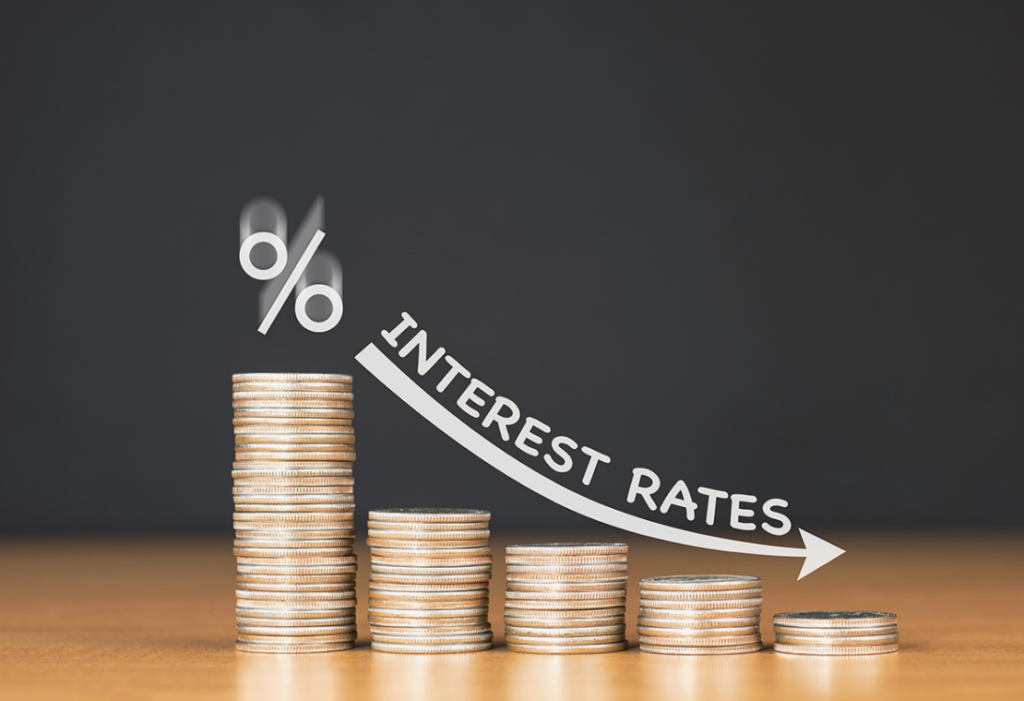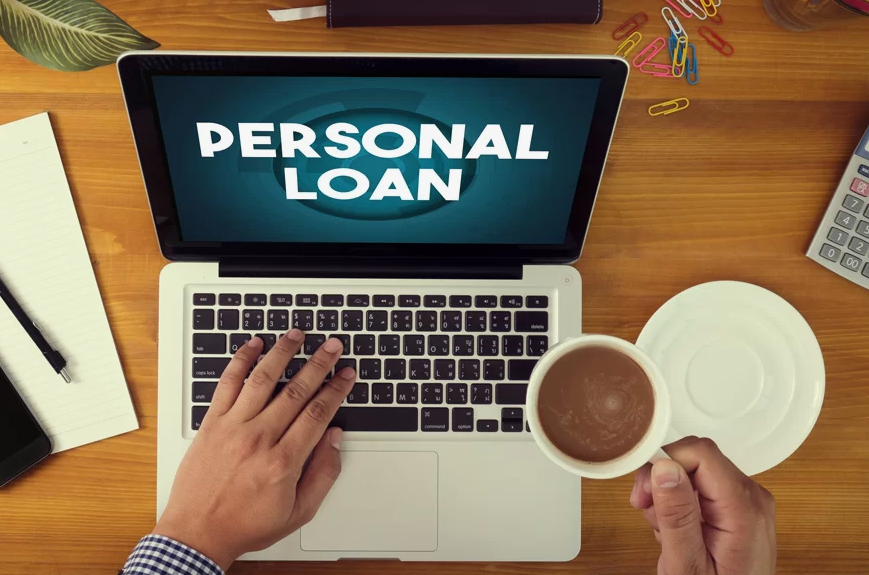Low-interest personal loans offer competitive rates for borrowers seeking affordable financing options. These loans provide access to funds at lower interest rates than traditional loans, making them a cost-effective solution for various financial needs. Whether you’re consolidating debt, funding a major purchase, or covering unexpected expenses, low-interest personal loans can help you achieve your goals without breaking the bank. We will explore the benefits of low-interest personal loans, how to qualify for them, and the factors to consider when choosing the right loan for your needs.
By understanding the ins and outs of these loans, you can make informed decisions and secure the financing you need at a favorable rate.
Low-Interest Personal Loans

What are Low-Interest Personal Loans?
Low-interest personal loans are a type of loan that individuals can borrow from financial institutions or lenders at a lower interest rate compared to other types of loans. These loans are typically used for personal expenses such as medical bills, home renovations, or debt consolidation. In this blog post, we will explore the definition of low-interest personal loans and discuss their benefits.
Definition- Low Interest Personal Loans
A low-interest personal loan is a financial product that allows individuals to borrow money from a lender with a lower interest rate compared to other types of loans. These loans are usually unsecured, meaning they don’t require collateral, such as a house or car, to secure the loan.
Low-interest personal loans are typically offered by banks, credit unions, and online lenders. The interest rates for these loans can vary depending on the borrower’s credit score, income, and the lender’s policies. Generally, individuals with good credit scores are more likely to qualify for lower interest rates.
With a low-interest personal loan, borrowers can access the funds they need to cover various personal expenses without paying exorbitant interest rates. These loans often have fixed interest rates, meaning the interest rate remains the same throughout the loan term, making it easier for borrowers to budget and plan their repayments.
Benefits- Low Interest Personal Loans
There are several benefits to obtaining a low-interest personal loan:
- Cost savings: One of the primary advantages of low-interest personal loans is the potential cost savings. With a lower interest rate, borrowers can save money on interest payments over the loan term.
- Flexible use of funds: Low-interest personal loans provide borrowers with the flexibility to use the funds for a variety of purposes. Whether it’s consolidating high-interest debt, covering medical expenses, or making home improvements, these loans can be used for various personal needs.
- Quick approval and disbursement: Many lenders offer quick approval and disbursement processes for low-interest personal loans. This means borrowers can access the funds they need promptly, allowing them to address their financial needs promptly.
- Improve credit score: When borrowers make timely repayments on their low-interest personal loans, it can positively impact their credit score. A good credit score can open doors to future financial opportunities with better loan terms and lower interest rates.
Overall, low-interest personal loans provide individuals with a cost-effective way to borrow money for personal expenses. By understanding the definition and benefits of these loans, borrowers can make informed decisions about their financial needs.
How To Qualify For Low-Interest Personal Loans
Low-Interest Personal Loans can provide financial relief with favorable terms and lower costs. Understanding how to qualify for low-interest personal loans is crucial for securing the best rates and borrowing conditions.
Credit Score
A good credit score is essential for qualifying for low-interest personal loans. Lenders typically offer better rates to individuals with credit scores above 720. Maintaining a clean credit history and timely payments can significantly impact the interest rates offered.
Income and Employment
Lenders assess income stability and employment history to determine loan eligibility. Steady employment and a sufficient income are favorable factors. Providing income verification and employment records can enhance the likelihood of securing a low-interest personal loan.
Debt-to-income Ratio
The debt-to-income ratio is a crucial factor in loan approval. Lenders prefer a low debt-to-income ratio, indicating that a borrower’s income can comfortably cover existing debts and the new loan. Reducing existing debts can improve the debt-to-income ratio, potentially leading to better loan terms.
Where To Find Low-Interest Personal Loans
Low-interest personal loans can be a great way to finance your needs without paying excessive interest. In this blog post, we will explore where to find low-interest personal loans and discuss the options available to you.
Banks and Credit Unions
Many banks and credit unions offer personal loans with competitive interest rates. These financial institutions typically provide personalized service and may be willing to work with you to find a loan that fits your needs. Additionally, they often have physical branches where you can speak with a representative in person. Before applying for a loan, it’s advisable to compare the interest rates and terms offered by different banks and credit unions to ensure you’re getting the best deal.
Online Lenders
Online lenders have become a popular option for obtaining personal loans due to their convenience and quick approval processes. These lenders operate entirely online and often have lower overhead costs compared to traditional banks, allowing them to offer competitive interest rates. When considering an online lender, it’s important to research their reputation and read reviews from other borrowers to ensure they are reputable and trustworthy. Additionally, be sure to compare the interest rates and fees from multiple online lenders to find the best option for your financial situation.
Tips For Getting Approved For Low-Interest Personal Loans
Low-Interest Personal Loans can be a great option for individuals looking to borrow money at favorable terms. This blog post provides tips for getting approved for low-interest personal loans, ensuring that you secure the best rates and terms available.
Shop Around For The Best Rates
When searching for low-interest personal loans, it’s essential to compare rates from various lenders. Consider online lenders, credit unions, and traditional banks to find the most competitive offers. Request loan estimates from multiple sources to evaluate the best options for your financial situation.

Improve Your Credit Score
To increase your chances of obtaining a low-interest personal loan, focus on improving your credit score. Pay all bills on time, reduce existing debt, and correct any errors on your credit report. A higher credit score can lead to better loan offers and lower interest rates.
Consider A Co-signer
If you have a limited credit history or a less-than-ideal credit score, consider asking a trusted individual to co-sign your loan. A co-signer with a strong credit profile can enhance your chances of securing a low-interest-rate personal loan. However, it’s important to understand the responsibilities and potential risks involved for the co-signer.
Common Uses For Low-Interest Personal Loans
Low-interest personal loans are a great option for those who need to borrow money for various reasons. Personal loans can be used for anything from debt consolidation to home improvement to emergency expenses. In this blog post, we will explore the common uses of low-interest personal loans and how they can help you achieve your financial goals.
Debt Consolidation
If you have high-interest credit card debt or other outstanding loans, consolidating your debt with a personal loan can be a smart financial move. By taking out a low-interest personal loan, you can pay off your high-interest debt and replace it with a single, more manageable monthly payment. This can help you save money on interest charges and pay off your debt faster. Here are some benefits of using a personal loan for debt consolidation:
- You can simplify your finances by combining multiple debts into one payment
- You may be able to qualify for a lower interest rate than what you are currently paying on your credit cards or other loans
- You can pay off your debt faster by making a single monthly payment with a fixed interest rate
Home Improvement
If you’re planning to renovate your home, a low-interest personal loan can help you finance the project without tapping into your savings. Here are some reasons why a personal loan can be a good option for home improvement:
- You can borrow a fixed amount of money with a fixed interest rate, which makes budgeting for your project easier
- You can choose a repayment term that works for your budget
- You can avoid using your home as collateral
- You can potentially increase the value of your home with the improvements you make
Emergency Expenses
Unexpected expenses can arise at any time, and a low-interest personal loan can help you cover them without resorting to high-interest credit cards or payday loans. Here are some common emergency expenses that a personal loan can help you with:
| Emergency expense | Benefits of using a personal loan |
|---|---|
| Medical bills | You can pay for medical expenses without sacrificing your savings |
| Car repairs | You can get your car fixed quickly without relying on high-interest credit cards or payday loans |
| Home repairs | You can make necessary home repairs without draining your savings account |
Low-interest personal loans can be a great tool for achieving your financial goals. Whether you’re consolidating debt, renovating your home, or covering emergency expenses, a personal loan can provide you with the funds you need at a lower interest rate than other types of loans. Consider your options carefully and choose the loan that best fits your needs and budget.
Important Factors To Consider Before Applying
Low-Interest Personal Loans are a popular financial option. Before applying, it’s essential to consider key factors.
Interest Rates and Fees
When applying for a personal loan, interest rates and fees play a crucial role. Compare offerings from different lenders to find the best deal. Some lenders may have low interest rates but high fees, so it’s important to consider the overall cost of the loan.
Repayment Terms
Understanding the repayment terms of a personal loan is vital. Check if the loan offers flexible repayment options, such as the ability to make extra payments or early repayments without penalties. Make sure you can comfortably meet the monthly repayments based on your budget.
Loan Amount and Eligibility
Consider the loan amount you need and the eligibility criteria of the lender. Different lenders have varying minimum and maximum loan amounts, so ensure the loan meets your financial requirements. Check the eligibility criteria, such as credit score and income requirements, to increase your chances of approval.
Alternatives To Low-Interest Personal Loans
Low-Interest Personal Loans provide financial flexibility to individuals. Exploring Alternatives to low-interest personal loans is essential to finding the best option suitable for your needs.
Credit Cards
Credit cards can serve as a convenient alternative to personal loans. They offer quick access to funds, but interest rates are typically higher than personal loans. Revolving credit may lead to accumulating debt if not managed responsibly.
Home Equity Loans
Home equity loans allow you to borrow against the equity in your home. They often have lower interest rates compared to personal loans. However, failure to repay could result in foreclosure on your property.
Peer-to-peer Lending
Peer-to-peer lending platforms connect borrowers with individual investors. These loans may offer competitive interest rates based on your creditworthiness. Transparency and flexible terms are key advantages of peer-to-peer lending.
Final Thoughts on Low-Interest Personal Loans
Low-interest personal loans can be a great option for those in need of financial assistance. However, it’s important to assess your financial situation, compare lenders and loan options, and make an informed decision before committing to a loan. In this blog post, we’ll provide some tips for making the most of low-interest personal loans.
Assess Your Financial Situation
Before applying for a low-interest personal loan, it’s important to assess your financial situation. Consider your income, expenses, and any other debts you may have. Determine how much money you need to borrow and create a repayment plan that works for your budget. This will help you avoid taking on more debt than you can handle and ensure that you can make your loan payments on time.
Compare Lenders and Loan Options
When it comes to low-interest personal loans, it’s important to compare lenders and loan options. Look for lenders that offer competitive interest rates and favorable repayment terms. Consider the loan amount, repayment period, and any fees associated with the loan. You can use online comparison tools to help you compare different lenders and loan options.

Make an Informed Decision
Before committing to a low-interest personal loan, make sure you have all the information you need to make an informed decision. Read the loan agreement carefully and make sure you understand all the terms and conditions. Ask the lender any questions you may have and make sure you’re comfortable with the repayment schedule. If you’re not sure if a loan is right for you, consider seeking advice from a financial advisor.
Conclusion
Low-interest personal loans offer a viable solution for individuals seeking financial assistance. With competitive interest rates and flexible repayment options, these loans provide the means to meet various personal needs, whether it’s debt consolidation, home improvements, or unexpected expenses. By carefully considering your financial situation and comparing different lenders, you can find a low-interest personal loan that suits your needs and helps you achieve your financial goals.




